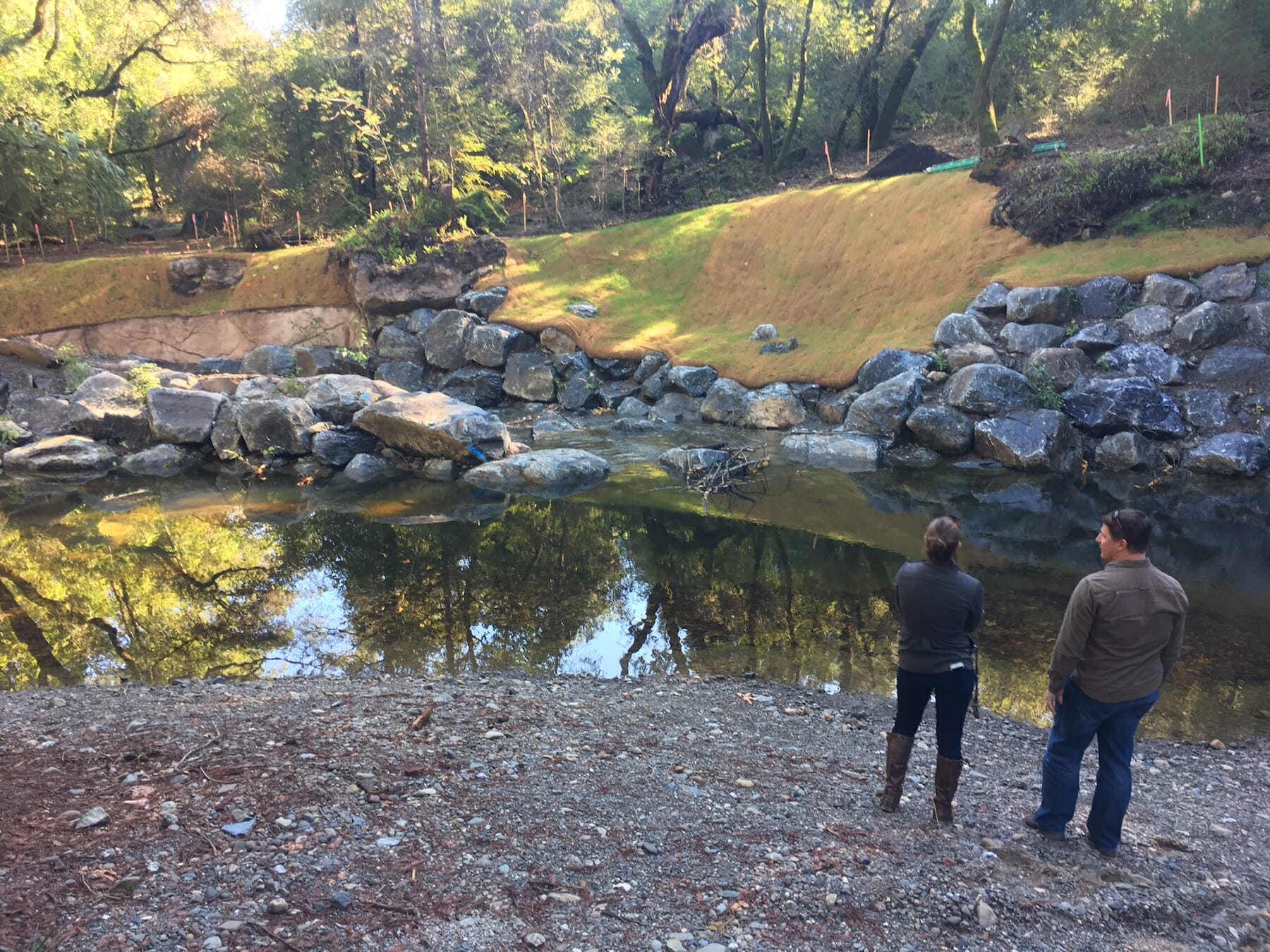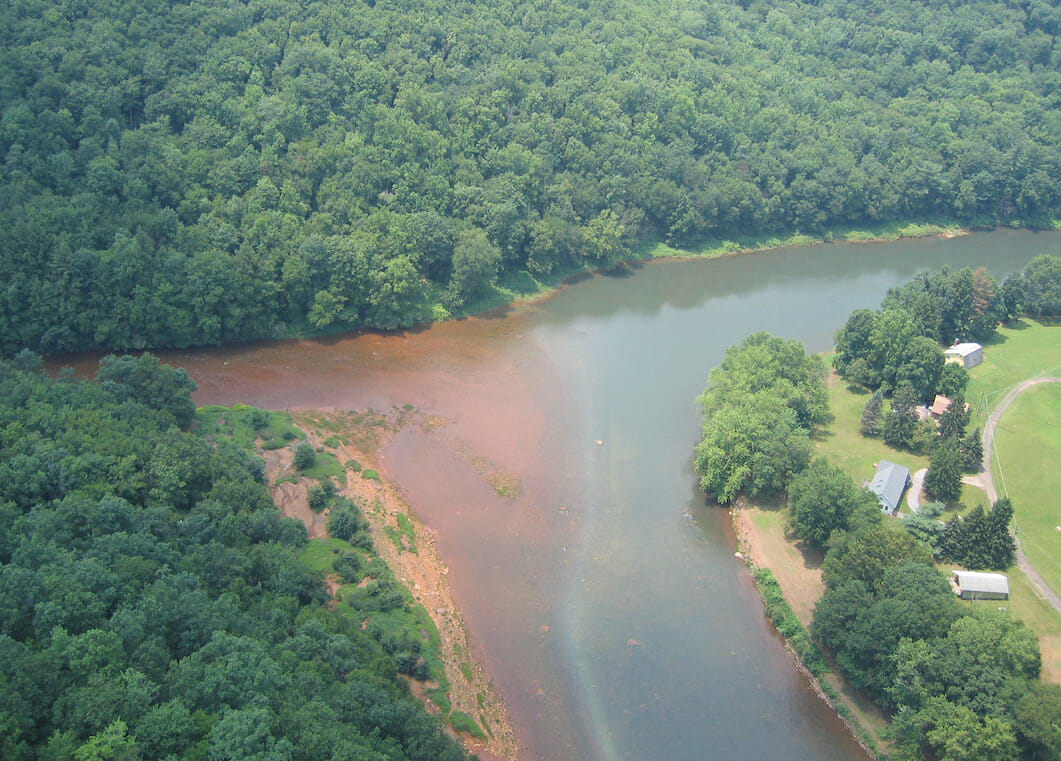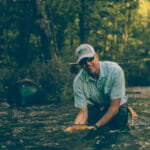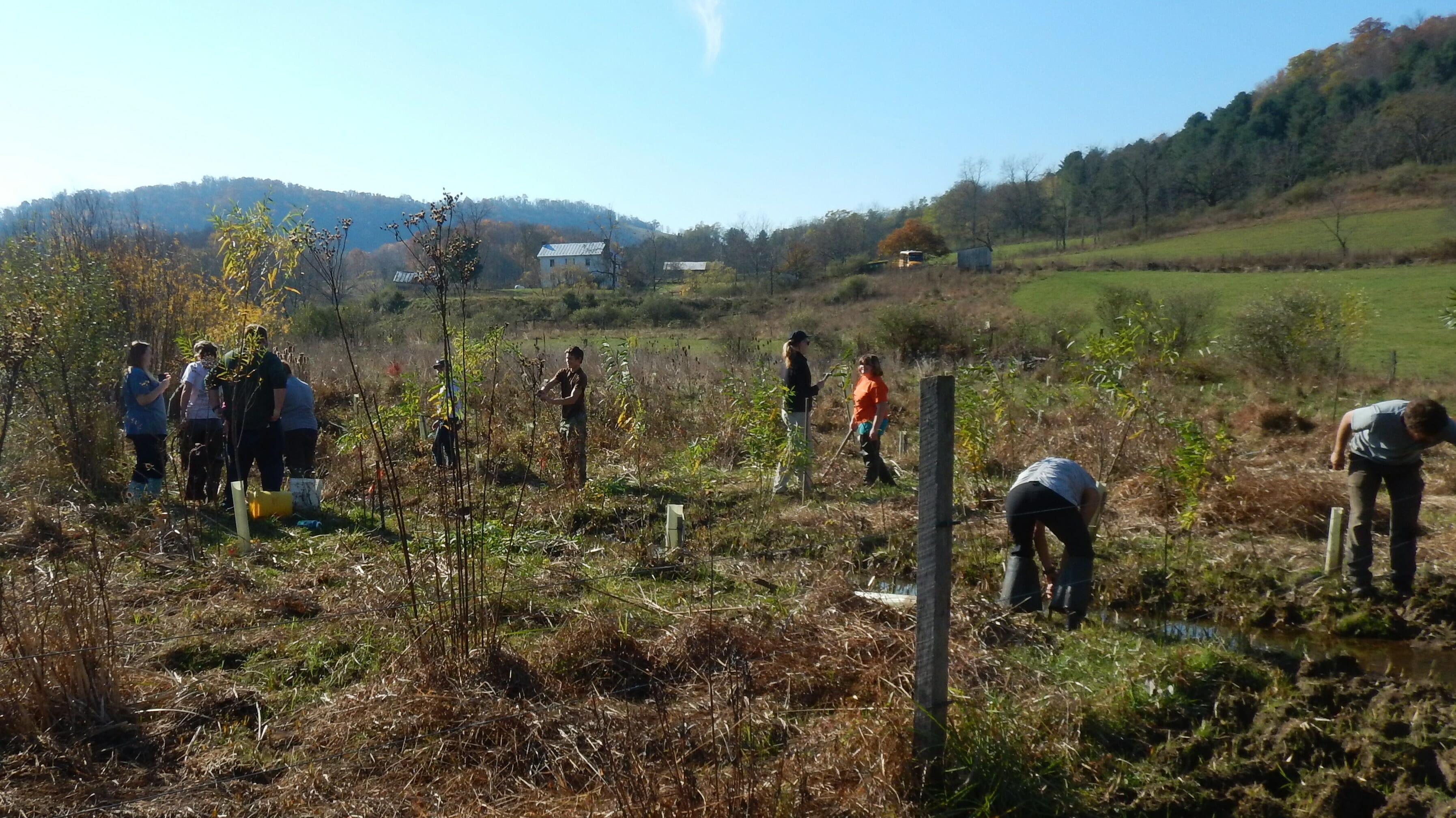Volunteers assist TU staff on a riparian corridor planting project in the upper Potomac River watershed in West Virginia. Elimination of funding for the Chesapeake Bay Program, as proposed in President Trump’s FY2018 budget, would devastate stream restoration efforts that are helping to improve water quality in the Chesapeake Bay.
The proposed FY 2018 budget released today by President Trump would levy deep cuts across agencies and programs that provide critical funding for air and water programs across the country, and would result in devastating reductions in Trout Unlimited’s ongoing efforts to protect and improve the country’s supply of cold, clean, fishable water.
Today’s proposal would cut the Environmental Protection Agency by more than 30 percent, undermining critical regional programs in Puget Sound, the Great Lakes and Chesapeake Bay and the state and locally-driven non-point-source pollution control program of the Clean Water Act.
Big cuts are also slated for the Department of the Interior, putting at risk the Land and Water Conservation Fund and Abandoned Mine cleanup grants which restore rivers impaired by mines. The Forest Service will also see cuts, as will the Natural Resources Conservation Service. The National Oceanic and Atmospheric Administration will see significant cuts impacting anadromous fish restoration and the science and monitoring efforts behind it.
“Conservation programs make our air and water cleaner,” said Chris Wood, president and CEO of Trout Unlimited. “They improve fish and wildlife habitat and make hunting and fishing better. Investing in places such as the Great Lakes, Puget Sound and the Chesapeake Bay are investments in the well-being of our kids.”
“Never before have we seen so much uncertainty when it comes to the health of our rivers and by extension, the health of our country. We are calling on Congress to be a voice of reason and stand up to protect our clean air and water by rejecting these short-sighted cuts. No one should have to worry about whether the water they drink or the air they breathe is polluted because the agency tasked with its protection has been whittled down to nothing.”
 This fish passage project at Mill Creek, a Russian River tributary in California, was made successful in large measure due to funding from NOAA’s PCSRF program and research provided by Sea Grant.
This fish passage project at Mill Creek, a Russian River tributary in California, was made successful in large measure due to funding from NOAA’s PCSRF program and research provided by Sea Grant.
For anglers, these cuts are particularly troubling. Major conservation efforts such as the Great Lakes Restoration Initiative and the Chesapeake Bay Program, bi-partisan and highly successful ongoing projects, are being zeroed out of the budget completely.
The Great Lakes Restoration Initiative is an effort to improve fish habitat, populations and the economy dependent on them while the Chesapeake Bay Program, works upstream with local farmers to improve operations and habitat in an effort to deliver clean water into the bay.
From here the budget will go to Congress for approval through the congressional appropriations process, however many lawmakers have indicated they are not likely to support these cuts.
Specific cuts that directly affect cold water conservation and fishing opportunity include:
• Elimination of all grant and education funding administered by the National Oceanic and Atmospheric Administration (NOAA), including effective research and restoration programs such as SeaGrant and the Pacific Coastal Salmon Recovery Fund which help to conserve and restore critical habitat for salmon, steelhead and trout.
• 66% reduction in funding for the Land and Water Conservation Fund, which leverages matching grant funding from state and private sources to protect open space, enhance outdoor recreation opportunities, and improve access for activities such as fishing and hunting.
• Significant reduction in funding for the NRCS’s Environmental Quality Incentives Program (EQIP), which (among other benefits) provides financial and technical assistance to agricultural operators who want to create, improve or enhance fish or wildlife habitat for declining species on farms and ranches.
“Sportsmen and women are very concerned about this trajectory,” said Steve Moyer, vice president of government affairs at Trout Unlimited. “We have seen the impact of polluted air and water in the past. Americans would not stand for it then, and they won’t tolerate it now. Agencies such as the EPA are the backstop for our country’s most basic environmental laws — laws that protect us all. Hunter or not, angler or not, we all depend on clean air and clean water.”
 Tainted by abandoned mine drainage, Moshannon Creek flows into the West Branch of the Susquehanna River in Pennsylvania. Elimination of funding for the Chesapeake Bay Program would cripple efforts Trout Unlimited and others are making to improve water quality through projects and programs in the upper reaches of the Bay’s watershed.
Tainted by abandoned mine drainage, Moshannon Creek flows into the West Branch of the Susquehanna River in Pennsylvania. Elimination of funding for the Chesapeake Bay Program would cripple efforts Trout Unlimited and others are making to improve water quality through projects and programs in the upper reaches of the Bay’s watershed.



